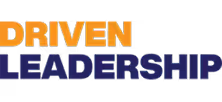Executive Coaching Programs in Tacoma, WA


Leadership Training Executive Coaching Programs in Tacoma, WA
Strong leadership drives measurable results. Our Leadership Training Executive Coaching Programs in Tacoma, WA are designed for senior leaders, emerging executives, and high-potential managers who need focused, practical development that moves the needle quickly. Tailored to the Pacific Northwest business environment and Tacoma-area organizations — from port logistics and manufacturing to healthcare, higher education, and municipal teams — these programs blend assessment, coaching, and applied practice to create sustainable leadership change.
Why Tacoma leaders choose executive coaching
Tacoma organizations face unique challenges: managing distributed and hybrid teams across the Puget Sound region, leading through seasonal workforce shifts at the Port of Tacoma, and aligning mission-driven public and nonprofit leaders with measurable outcomes. Executive coaching in Tacoma helps leaders increase clarity, improve team execution, and create cultures that retain talent despite competitive recruiting pressures in the Seattle-Tacoma corridor.
Common leadership challenges we address
- Lack of strategic focus or difficulty translating strategy into execution
- Low team engagement or unclear accountabilities across departments
- People-management gaps: giving feedback, holding managers accountable, developing successors
- Stress, burnout, and self-limiting leadership behaviors under pressure
- Leading through change: mergers, reorganizations, digital transformation
- Cross-functional alignment for operations like logistics, healthcare, or campus administration
Program types and what to expect
We offer modular executive coaching options that can be combined to meet organizational goals.
- One-on-one executive coaching
- Personalized development plan based on role, business goals, and learning style
- Confidential sessions focused on leadership presence, decision making, and stakeholder influence
- Team and cohort coaching
- Peer groups or leadership cohorts from the same organization to build alignment and shared practices
- Facilitated sessions to improve team execution and accountability
- Intensive workshops and retreats
- Short, immersive experiences for rapid skill development and behavior practice
- Useful for leadership transitions, strategy rollouts, or high-stakes team building
- Integrated leadership programs
- Multi-month paths combining assessments, coaching, workshops, and action projects
- Designed to create measurable organizational impact
Assessment tools and diagnostics
Robust assessment is central to targeted development. Typical tools used in our Tacoma programs include:
- 360-degree feedback to capture perceptions from peers, direct reports, and supervisors
- Personality and leadership style profiles (e.g., DISC, Hogan, or Leadership Circle summaries) to identify strengths and blind spots
- Behavioral interviews and situational simulations to observe real-time decision making
- Team health diagnostics to measure clarity, trust, and execution capacity
Assessments are used to create a baseline, shape coaching goals, and provide measurable outcomes at program completion.
Coaching cadence and delivery options
Programs are scheduled to fit executive calendars while ensuring momentum and accountability.
- Cadence
- Short-term intensives: weekly sessions for 6-8 weeks for focused skill adoption
- Standard executive coaching: biweekly sessions over 6-12 months to drive sustainable change
- Quarterly check-ins and refreshers for ongoing development and succession planning
- Delivery
- In-person sessions in Tacoma or on-site at your facility for experiential work
- Virtual coaching via secure video for greater scheduling flexibility
- Hybrid models combining in-person retreats with virtual follow-ups
Coaching engagements include measurable milestones and mid-program progress reviews to keep leaders and stakeholders aligned.
Confidentiality and ethical practice
Executive coaching deals with sensitive topics. Confidentiality is strictly maintained:
- Coaching agreements define what information is shared, reporting lines, and stakeholder updates
- Aggregate, anonymized reporting is provided for organizational sponsors when requested
- Coaches adhere to established ethical standards for coaching practice and data privacy
This framework ensures leaders can explore development honestly while organizations receive the insight they need to justify investment.
Expected leadership outcomes and metrics
Well-structured coaching delivers both behavioral changes and business results. Common, measurable outcomes include:
- Improved 360 feedback scores on key leadership competencies
- Increased team engagement and reduced voluntary turnover
- Faster decision cycles and clearer accountability with fewer cross-functional conflicts
- Greater readiness of successors and improved bench strength
- Measurable gains in strategic execution metrics such as project completion rates or operational KPIs
Outcomes are tied to initial assessments and tracked through follow-up diagnostics and stakeholder surveys.
Local case studies of executive development (anonymized)
- Logistics Director, regional port operations
- Challenge: cross-department friction slowed vessel turnaround times
- Approach: 360 feedback, targeted coaching on stakeholder influence, and a cross-functional alignment workshop
- Result: improved coordination, a 15 percent faster response time for port scheduling conflicts, and higher staff confidence in escalation paths
- Chief HR Officer, Tacoma healthcare system
- Challenge: high nurse turnover and inconsistent leadership practices across departments
- Approach: cohort coaching for clinical managers, manager skill-building clinics, and measurement of engagement drivers
- Result: measurable reduction in turnover in pilot units and standardized leadership behaviors adopted systemwide
- Athletic program leader, university athletics department
- Challenge: recruiting and retention pressures, need for performance culture shift
- Approach: one-on-one executive coaching, team execution sessions, and performance accountability frameworks
- Result: clearer recruiting priorities, improved staff retention, and stronger competitive performance
Implementation roadmap and integration
A typical engagement follows these steps:
- Align objectives with organizational sponsors and define success metrics
- Conduct assessments and stakeholder interviews to establish baseline
- Create an individualized development plan with milestones
- Execute coaching sessions, workshops, and practice assignments
- Track progress with interim assessments and adjust coaching focus
- Deliver final outcomes report with recommendations for sustaining gains
Sustaining leadership gains
Leadership development is an ongoing process. To embed change:
- Build regular coaching touchpoints into leader calendars
- Create peer coaching circles or leader cohorts for continuing accountability
- Integrate behavior-based performance measures into review processes
- Use real work projects as applied learning opportunities
Executive coaching in Tacoma, WA supports leaders who must navigate local industry complexity, hybrid workforce realities, and the competitive talent market in the Puget Sound region. When assessments, focused coaching cadence, confidentiality, and measurable outcomes work together, leaders become more effective—and organizations see real performance improvements.

